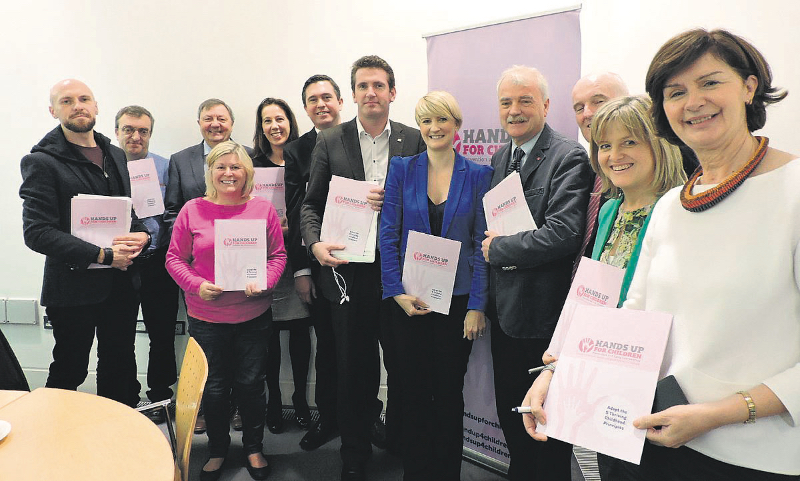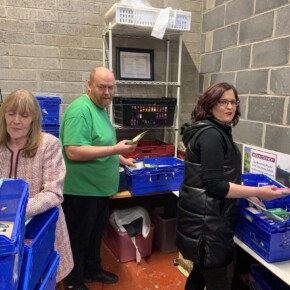Call to make children an election priority
Dublin People 28 Nov 2015
THE Northside Partnership’s Preparing for Life project hosted an event in Coolock recently to raise awareness of the ‘Hands Up For Children’ campaign.
The campaign is calling for preventative and early interventions for children and families to be a priority in the next programme for Government.
A coalition of organisations from around the country, ‘Hands Up for Children’ is seeking political parties and Independent candidates to adopt its five ‘Thriving Childhood Principles’ which set out a case for increased investment in early intervention and for realigning resources from crisis to prevention.
Preparing for Life is a prevention and early intervention project working in Dublin 5 and 17. It works to improve children’s lives by supporting parents, early years practitioners and teachers to use proven approaches to help children achieve their full potential.
Preparing for Life Programme Manager Noel Kelly said they were supporting the campaign because it believes smart investment in children is the best way to improve outcomes in communities where it works.
“We operate in an area that has unemployment rates which are almost double the national average,” said Mr Kelly.
“We know that Dublin 17 has one of the lowest progression rates to third level education in the country.
“We know that one third of people living in our target area haven’t progressed beyond primary level education.
“It is sad that this course for a child’s life, that leads to under achievement in education, unemployment and poverty, can be set at a very early stage – before a child even begins primary school.”
‘Hands Up For Children’ chairperson Marian Quinn said decision makers have choices and can commit to children.
“Looking after our children, or not, is a policy decision – simple as that,” said Ms Quinn.
Preparing for Life chairperson John Carr said: “Teachers working in this area will tell you that they can predict with frightening accuracy those children whose futures are already compromised as soon as they arrive in school at the age of four or five.
“For me, this clearly demonstrates that we need to intervene at the earliest possible stage in a child’s life.”
Local public representatives were invited to a roundtable discussion at the event.











